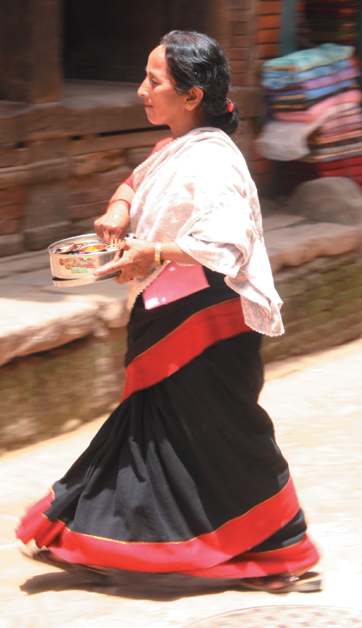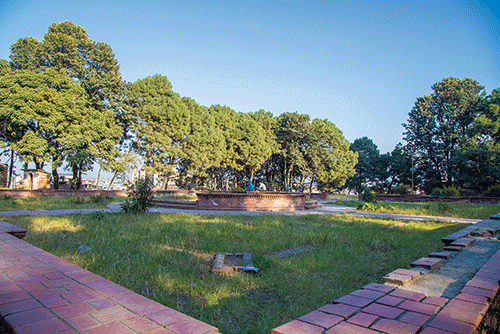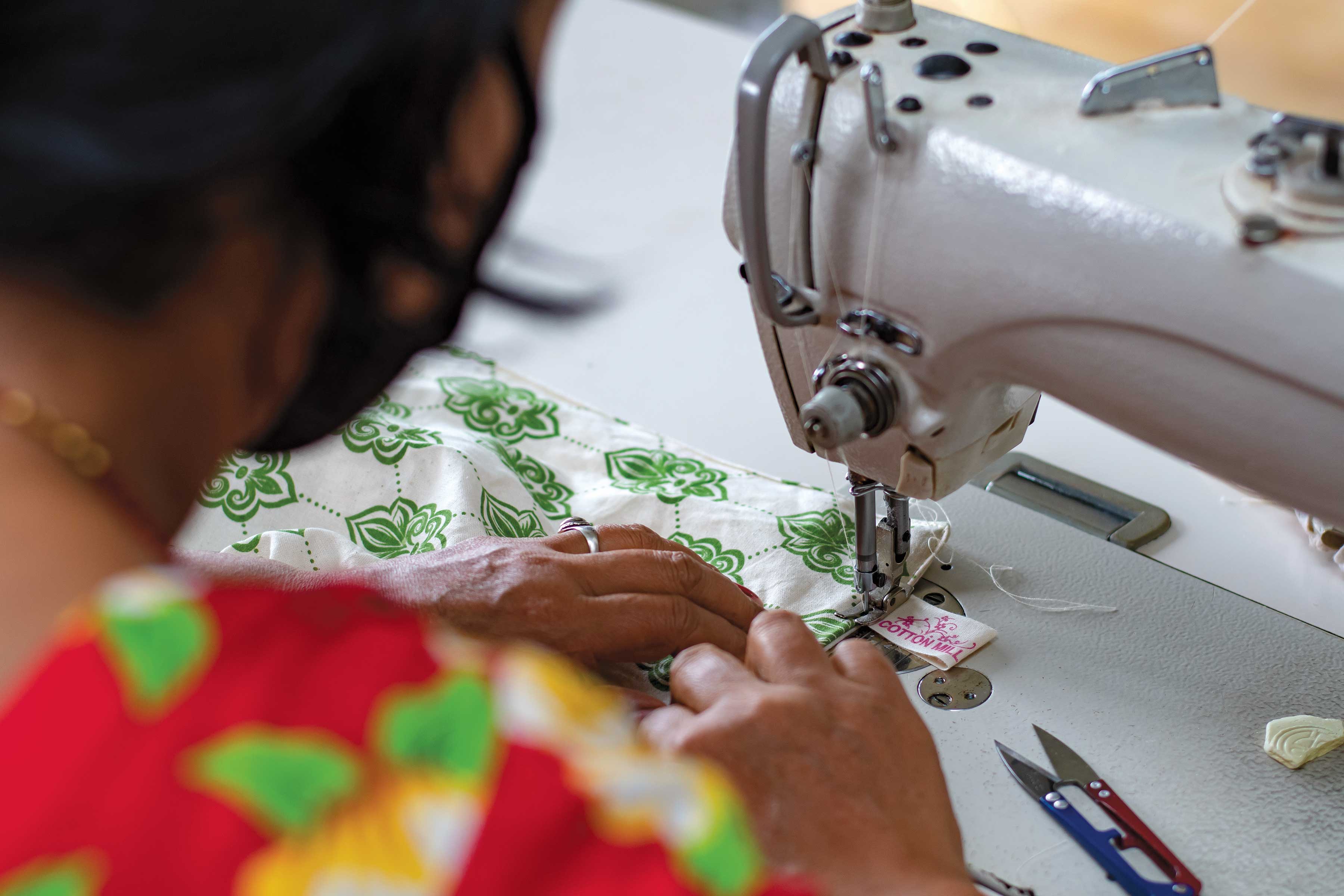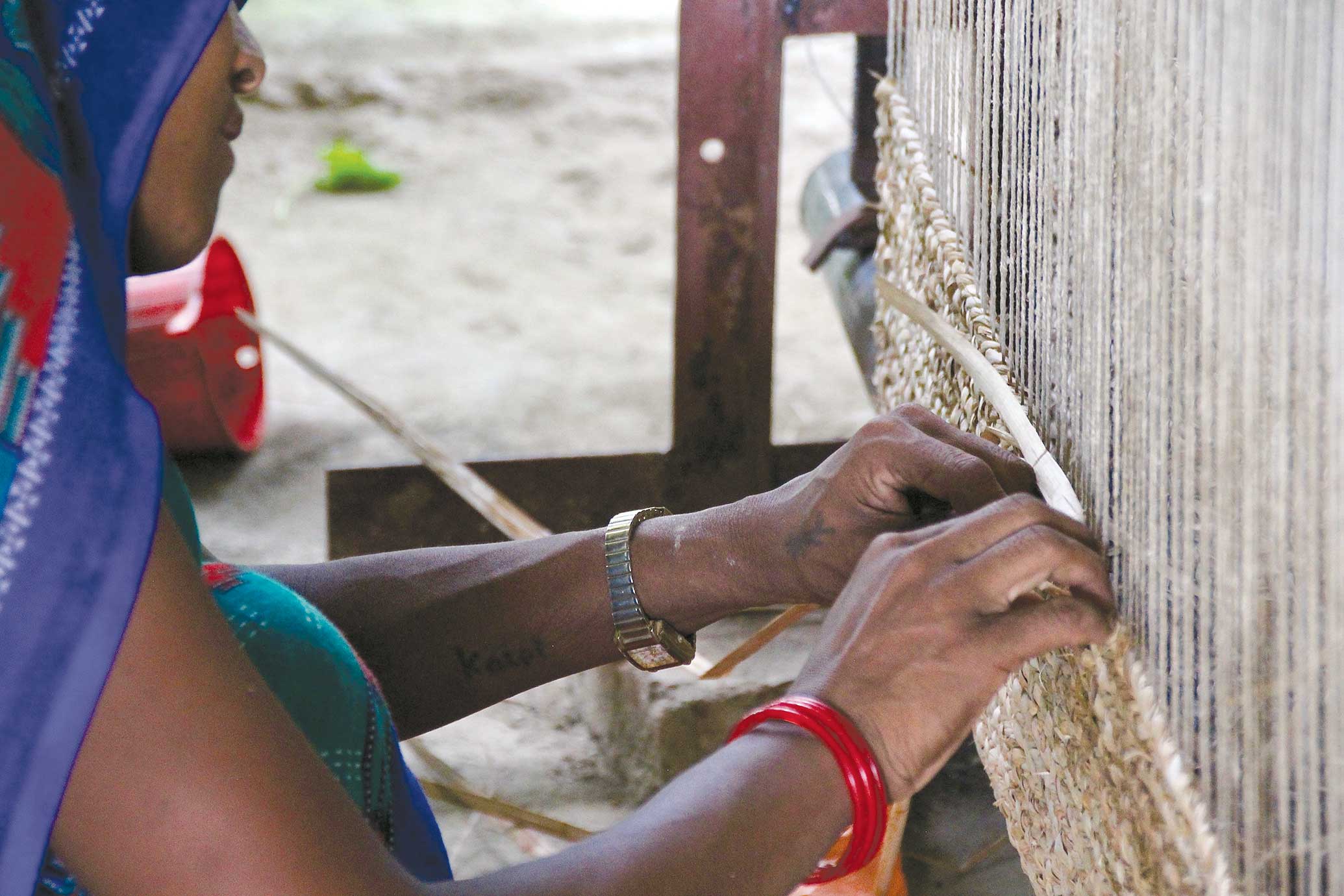The traditional Hakku Patashi translates as black sari in common Newari dialect. True to its name, a Hakku Patashi is a simple, black sari with a distinct red border popular among Newar women. Nothing says culture, tradition and special occasion at a Newar gathering more than the sight of a woman adorned in a Hakku Patashi.
 But the Hakku Patashi is not just a popular black sari. It is actually made in a tna: which is a dated machine that spins cotton into cloth, used by small scale cottage industries in Nepal. A Hakku Patashi is made from pure cotton and bordered with a red band onto the otherwise plain sari. The process of making a Hakku Patashi itself breathes a sense of ethnicity and authenticity to the sari’s charm.
But the Hakku Patashi is not just a popular black sari. It is actually made in a tna: which is a dated machine that spins cotton into cloth, used by small scale cottage industries in Nepal. A Hakku Patashi is made from pure cotton and bordered with a red band onto the otherwise plain sari. The process of making a Hakku Patashi itself breathes a sense of ethnicity and authenticity to the sari’s charm.
While the sight of a Jyapu woman wearing a Hakku Patashi as she goes about her daily chores is a common sight, in traditional households of Patan and Bhaktapur, these saris are mandatory wear for cultural events. These events might include ceremonies that concern worshipping local deities and also when Jyapu women are required to take trips around all the temples of local deities in the area. Hindu festivals such as Dashain are also occasions when we see more women in these saris.
A Hakku Patashi is worn with a white patuko, a lengthy waist band also made out of cotton, a blouse and typically large earrings. The word Patashi stems from the word Pata in Newari which means a strip. This indicates the patuko worn around the sari. It is also seen more popularly on Jyapu women planting rice. This is a common sight to be seen in rice fields on the outskirts of Kathmandu Valley and also in and around Bhaktapur.
The charm of a Hakku Patashi lies more in the sense of culture and tradition bound to it than anything else. An image of a Newar girl in a Hakku Patashi serving guests is also a popular symbol of the lavishness that is Newar culture. Its popularity and symbolism has been adopted in many restaurants serving Newari cuisine, to be worn by female attendants.
The essence of all Newar festivals and Newar culture itself as a matter of fact, lies in the continuity of not just traditional ceremonies, but a traditional lifestyle without failing to look into all the proper details. The Hakku Patashi for the Newar people is one such very important, historical detail.

More than just your usual lapel pins
The lapel pin is a men’s accessory worn on the lapel of the jacket which serves as a...










